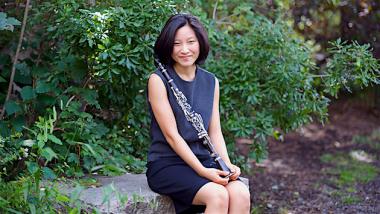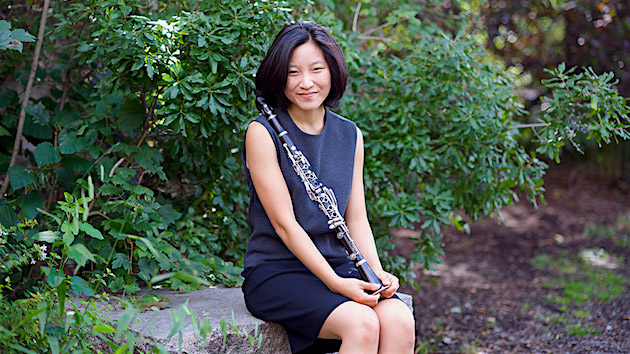
Eun Lee has no time to play the clarinet, even recreationally.
Her loss is everyone’s gain, because the clarinetist, music educator, conductor, and co-founder of The Dream Unfinished stands poised with the baton of an activist orchestra instead of clarinet in hand. Wielding it, Lee is prepared and determined to scorch the iceberg of racist myopia in America.
Stated in less dramatic terms, the endeavor that started in 2015 at Centennial Memorial Temple in New York City as a one-off performance to address issues of racial and social justice and support the Black Lives Matter movement, in particular, has bloomed into seasonal programs that include headline concerts, small-scale chamber events, lecture appearances, and attention from artists, critics, and the media.
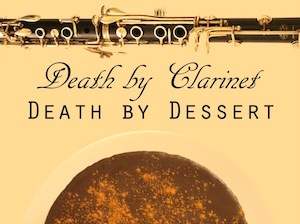
Lee, based in Queens, New York, teaches in New York City public schools and is Woodwinds and Musicianship Teaching Artist at the Corona Youth Music Project and head teacher in the Diller-Quaile School of Music’s Early Childhood Outreach Program. A graduate of Northwestern University’s Bienen School of Music with a bachelor’s in music education, she is a founding member of the Gusto Chamber Players ensemble, which presents interactive food and music experiences.
Lately, Lee is simply busy.
Even before TDU’s inaugural performances, coinciding with the one-year anniversary of Eric Garner’s death at the hands of a New York City Police Department officer, Lee says she was convinced that classical musicians must choose for themselves whether or not to become politically active. “I’m quick to say that classical musicians do not have to do anything. The inaugural was conceived as a one-off. Part of what has sustained us is the internal momentum that has been generated. We had musicians from the highest caliber organizations in New York City. They all played for free in an 88-member orchestra. They came up afterwards and asked when we’d be doing it again. It was powerful.”
In 2016, the second season had TDU showcasing exclusively female composers, with an emphasis on black female composers under the thematic heading of Sing Her Name. The headline event was timed to coincide with the one-year anniversary of Sandra Bland’s death on July 13. The concert held dual purpose: to draw attention to the significant contribution of composers like Florence Price, Ethel Smyth, and a new commission by Courtney Bryan, and to shine a spotlight on largely overlooked black women’s loss of life at the hands of law enforcement or women subject to rape and other violence in contemporary society.
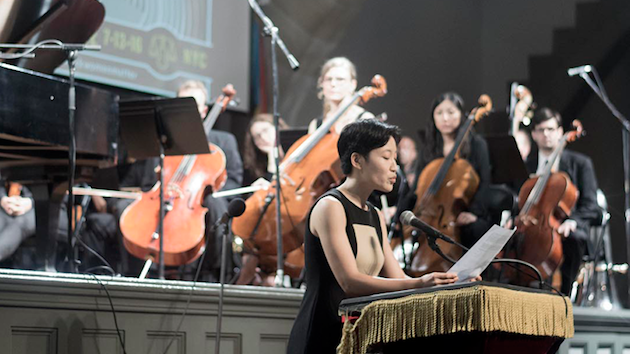
This year, the theme is Raise Your Hand, with attention paid to children of color, especially black and Hispanic children. “Many of them are pushed out of schools into the criminal justice system,” says Lee, referring to what is increasingly know as the school-to-prison pipeline. She cites studies: Every seven seconds, a Latino student is suspended in public schools. Black pre-kindergarteners are suspended in disproportionate percentages when compared to the number of them in given classrooms. “The fact that pre-K students are being suspended at all is horrendous,” says Lee.
Working in the trenches to produce the concerts, Lee has little time for esoteric arguments and establishes in rapid half-comments that classical music has political protest in its history. “Beethoven’s “Eroica” symphony, or classical music that takes folk music and incorporates it — there is precedent, although it was not culture-wide.”
And because classical music’s populist roots were largely swept up by elitists in Western Europe, she takes particular pleasure in spotlighting marginalized practitioners. “Ignatius Sancho: He was born in the 1700s on a slave ship, but somehow, through luck, he was able to teach himself to read and write. Through talent and likability he purchased his freedom and became a composer in the classical tradition,” says Lee. She never considered including his work in TDU’s repertoire, recognizing that while his life was admirable, his music wasn’t of the same caliber as other work on the program. “The fact that there was work like his, even if it’s not worthy of being performed, doesn’t mean it’s not important that he existed,” Lee says.
In her mind is always the idea that classical music’s relevance is reliant on people of different races and backgrounds recognizing themselves in the musicians onstage, or hearing music composed by people of similar race and class. At TDU’s first concert, she said energy between audience and musicians was palpable, synergistic. “It was the most diverse orchestra and audience I’ve ever seen in New York City. You know, I was at a nearly sold-out concert at Carnegie Hall last month? I counted only 30 black people.”
TDU concerts include readings and bold talk about race. “Our timing has landed at a point where people are talking with regularity and frankness about race. People are rioting in the streets: Our identity as an activist orchestra is part of that. Our being relevant today, instead of five years out, is shifting the classical music paradigm.”
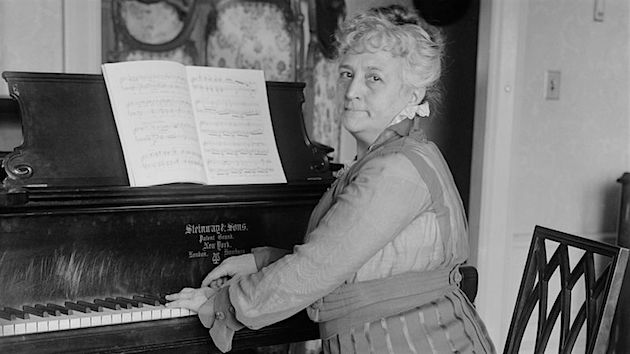
It’s more like power-lifting than shifting, because for now, 95 percent of the orchestra’s behind-the-scenes action is volunteer. Along with Lee and Artistic Director Terrance McKnight, a team of approximately 10 people and a 10-member advisory board mastermind the project. Raise Your Hand is a big ship and will feature an orchestra of students performing alongside professional musicians, led by conductor Roderick Cox. Soloists Kelly Hall-Tompkins, Dr. Ashley Jackson, and other guest speakers supplement music by Le Chevalier de Saint-Georges, Teresa Carreño, Samuel Coleridge-Taylor, William Grant Still, George Walker, and a world premiere by Evan Williams. A United Way Foundation grant underwrote a 16-week teaching residency with the students. Lee says that educational departments at New York City concert venues are showing interest, but corporate support remains a distant goal that awaits TDU’s acquisition of nonprofit status.
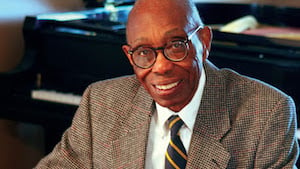
As an added burden to the organizational and financial hurdles, acquiring rights to perform the work of contemporary composers like Walker is more difficult than performing scores of a canonical composer whose work is in the public domain.
A mix of chamber and headline concerts forms the nucleus of operations. “Chamber events can be two musicians showing up at someone’s apartment. Those are grassroots. We pick repertoire that will resonate. And a concert in Queens versus Brooklyn versus Manhattan requires different programming.” Later, she adds that location is becoming increasingly significant due to historical connections TDU would like to establish — or simply due to desired accessibility. Being flexible enough to think beyond Manhattan or Brooklyn is an ongoing point of discussion. “But whatever music and wherever we program, it has to be good,” says Lee. “I never want to be accused of pandering. Mediocre works are not what we do.”
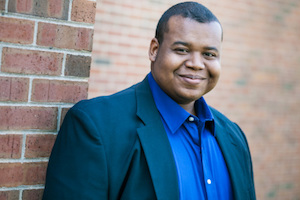
Recognizing missteps is essential as TDU evolves. Lee says there was too much talking in last year’s series. “The topics we’re focusing on can be heavy. Audiences can experience fatigue, so activating while informing people is a balance. We can’t beat them over the head with our agenda. A part of this is us showing the joy that we have in the work.” Balance, in 2017, means programs have six musical selections and no more than three speakers—and there is more careful oversight of length. “Every speaker last year spoke double the time we gave them. It was like a Eugene O’Neill play,” she says, laughing.
This year, the young musicians add joy and energy. Student compositions included in the concerts amplify youthful voices filled with exuberance, rage, wild imagination, trials, and triumphs. Musical biographies told by actors hold similar mirrors to composers’ lives. There’s uplift in the struggle, even though there’s much work to be done, Lee says.
Acknowledging the vital work of organizations like Sphinx Organization and programs inspired by Venezuela’s El Sistema, Lee says TDU stands out by staking its position with unprecedented clarity. “I don’t know of any orchestra that’s mentioned Michael Brown, Sandra Bland, or classical music’s racism. It’s clear how we verbalize racism. The New York Phil probably has more to risk, so they don’t have the freedom to get as in-your-face as we do. That’s our burden and our luxury: We can say what we want to. Black Lives Matter is not only a black issue: it’s something people who aren’t black care about.”
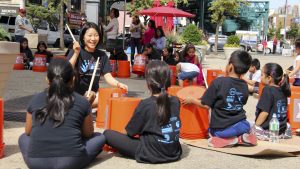
Lee, who was born in Korea and is a naturalized American citizen, says that as an Asian in the world of classical music, she is “conditionally white.” On the street, she’s been called Chink and people do look at her and say, “Why do you care about black lives?” In part, the question is the reason she’d like the organization to have a person of color — a black person specifically — as executive director. Although she cares deeply about the Black Lives Matter movement, she says it is entirely different to be a person who has lived the experience. “I’d love to step away and delegate more. I still drive the ship. No organization should rely that much on one person. We need key personnel.”
Until then, the woman who once thought she’d become a visual artist like her parents, then a photographer, then a professional clarinetist playing in an orchestra, will continue to carry the torch for TDU. The 2018 season will introduce work by international composers with specific emphasis on work from the Muslim community. Guest speakers will talk about immigration, historical racial bans in America, and bias in policing. “The work needs to get done,” Lee says. “People become informed about composers, about the issue. To even know the term ‘school-to-prison pipeline,’ to become aware of their own actions, to be able to engage in dialogue about race is what we hope they walk away with.”
Ticket information for Raise Your Hand is available here.

